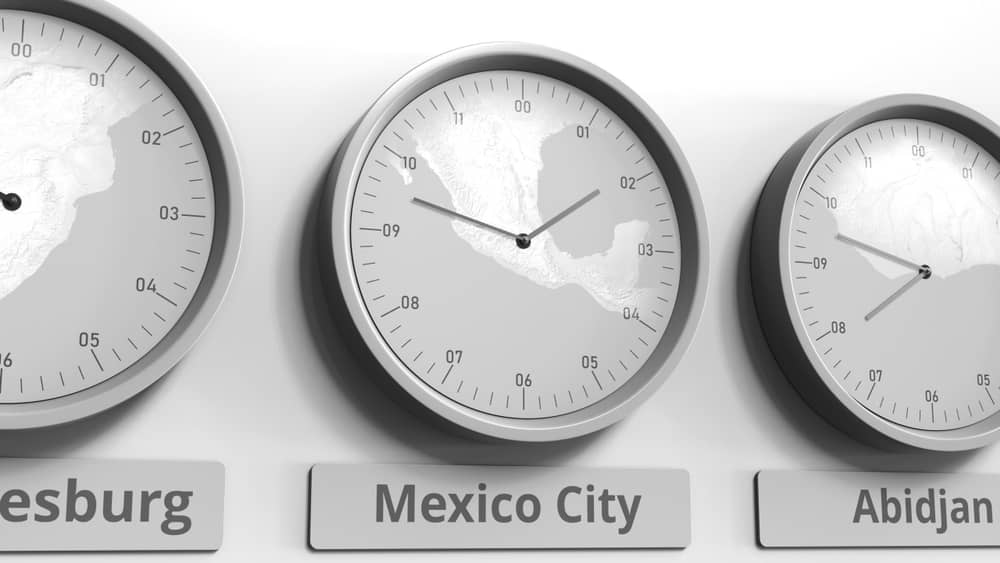Good communication is the key to success when working with remote teams.
It’s boring but true.
It’s also easier said than done.
Good communication is accomplished with a complex set of skills and a mix of psychology, etiquette and corporate policies that can be really difficult to implement and practice. At Unosquare we’ve been refining the art of communication with our remote teams for 11 years and we’ve learned a lot of lessons. We asked our software development professionals to weigh in on what it’s like communicating across time zones, language barriers and cultural differences. We wanted to know the challenges, the pitfalls and the stumbling blocks and how they can be planned for, avoided, or remedied.
1. Set Expectations Early
Good communication needs to start from the first interaction. Setting clear expectations for a potential hire is just as important as it is for a long-term employee. For instance, when interviewing candidates for positions in our Belfast, Northern Ireland delivery center, we make sure to explain the nature of our work, especially the time requirements that come with the job. Most of our clients are based in the United States and when our employees are working as augmented team members, we need to ensure time zone overlap so team members can effectively work together. Therefore, it’s expected that our Belfast software development professionals will be working at least until 6 PM in order to participate in meetings and collaborate with the client team. Potential employees know this from the outset so there are no surprises when they start.
“We make sure to have the time zone conversation early on,” says Lee Kennedy, Unosquare Delivery Services Representative and Scrum Master. “That way there is no disappointment and people will know what is actually expected of them. It’s important to establish complete transparency upfront.”
By starting the relationship with open, transparent and consistent communication, you create a foundation to build from.
2. Trust your team
Trust is a seldom recognized but key component of working with remote teams and it’s built from good communication practices. When you’re part of a distributed team, especially one spread over geography and time zones, you need to trust that work will continue to get done when you sign off for the day. Kennedy suggests imagining putting your tasks in a bucket at the end of the day and using workflow software like Jira to update your progress and indicate the next steps. The trust element comes into play in those progress updates – you have to trust teammates to make progress and keep the team informed about roadblocks that pop up and vice versa. Over time, you build trust and these daily handoffs become smooth and work progresses.
“Make sure you communicate and don’t micromanage. “I’m signing off now, the issue is at that level and I’ll check in tomorrow’ is a good start,” Kennedy said. “If things didn’t get done, be specific and firm but not angry. Something might seem like common sense to you because of your experience but maybe the other person isn’t aware. You have to trust.”
3. Coach Introverted Engineers
It may be a bit of an overblown stereotype, but we often encounter software development professionals who are introverts. However, it’s important to point out that an individual doesn’t need to be an extrovert to communicate well. For example, we can acknowledge that public speaking might not be an individual’s strong suit and coach them in ways to make their standup reports effective without trying to change their personality type.
“I had someone who was very blunt – to the point that people on the team thought he was rude. I brought it up informally and said ‘In my experience, here is what I would have done’ and gave him the language to use to get his point across without coming across so harsh,” Kennedy said. “When you see something you can change, mention it. Be respectful. Treat people the way you want to be treated. People will see you want them to do well and you care and are trying to help them succeed. Being a good communicator makes you a more well-rounded employee. You have to be technically and emotionally aware at Unosquare.”
In our experience. people who want to succeed in their careers will understand they need to move out of their comfort zone and work on skills beyond software engineering to move up the ladder. Gabriel Acosta, Unosquare Delivery Services Representative from our Guadalajara, Mexico delivery center, adds that good communication is just as important as good coding on a remote team. When we see that someone needs to improve their communication skills we reach out to ensure that we made our expectations clear, offer guidance or coaching and if things don’t improve, we have escalation measures in place to make it a priority for improvement.
“Bad communication is a performance issue – just as if you were writing bad code,” Acosta said. “We need our team members to be able to do both, and do them well.”
4. Be Aware of Language and Cultural Differences
Though all of our software development professionals have to be proficient in English, we sometimes encounter language issues. In these situations, the issue isn’t being able to express oneself in English, it’s the desire to do it perfectly that can lead people to stay quiet. It boils down to a confidence issue.
“In that case, we reinforce that it’s more important to communicate the overall idea than to have it perfect,” Acosta said. “We encourage people to keep talking, use the imperfect word to express the idea. The context will almost always make the message clear and usually people will be polite enough to let you know you aren’t saying something right and you’ll discover the right words.”
There are also situations where people overcomplicate matters and the meaning gets lost in translation. Acosta describes this as explaining thermodynamics when someone says they are cold.
“As a leader, you have to try to become something like a translator when you realize this is an issue,” he said. “You stay in contact with the team and follow up after meetings to provide clarification and make sure everyone understands.”
An important part of having good communication skills is not being afraid to ask for clarification when something is unclear. Nuances can be very subtle even among native speakers of a language. Add in the complexities of a second or third language spoken and they can become completely unclear.
“We encourage ‘raise your hand culture.’ We want our employees to be confident enough to ask when they don’t fully understand,” Acosta said. “If someone from the U.S. says ‘you’re doing a nice job,’ in Mexico we understand that as subpar but that might not be the intended meaning.”
It’s also important for clients to be aware that cultural differences can mean some things might be misinterpreted but that should help, not hinder, good communication in teams. If a client is aware and acknowledges the potential gap, people feel freer to ask for clarification and the whole communication climate improves.
5. Check Existing Corporate Policies
Implementing an internal communication plan is vital to the success of large remote teams. Things are easier with small teams or between teams in constant contact but it gets more complex with large teams who don’t frequently collaborate. An internal communication plan will instruct who to contact on a particular team and what the correct method is to do so.
“The plan is a big part of our working agreement with clients,” Acosta said. “It sets expectations explicitly so frustrations don’t arise when people are trying to get information.”
Ticket systems are useful to normalize the process for contact between teams. One of our larger clients uses ServiceNow to set rules and facilitate communication. Implementing these tools provides consistency and clarity around communication in a large corporate setting. Additionally, utilizing the Team Lead or Scrum Master can be valuable in escalating a ServiceNow ticket which can lead to a faster turnaround time. When we can use the right channels and contact the right people, questions get answered and information gets provided quickly and largely hassle-free.
Jira, as we mentioned before, serves as a single source of truth for the project, providing a document that can be a reference for everyone involved. This written record of communication between team members is a useful resource when questions arise. This traceability of communication over time creates a level of confidence that thought processes and decision reasoning will be available to refer to in the future.
“If you don’t have the right tools, conflict will arise and communication will suffer,” Acosta said. “Consistency is important to establish from the very beginning.”
Conclusion
Communication drives the work we do at Unosquare. We focus on it on day one and day 1,001 because we know it’s what makes our remote teams so successful. We know what works on a team of 8 and what works on a team of 80+ because we’ve powered both and everything in between. From our executive committee to our team leads to our most junior software developers, we believe that good, transparent communication is the way to make the most of remote team collaboration. It makes for well-rounded employees, clients who are informed and projects that are successful. Want to learn more about our software development services? Check out our blog.

